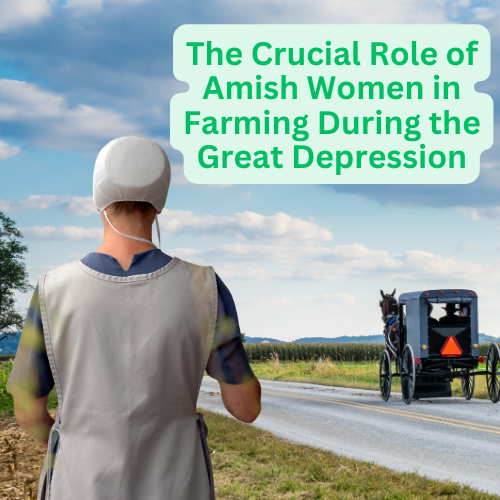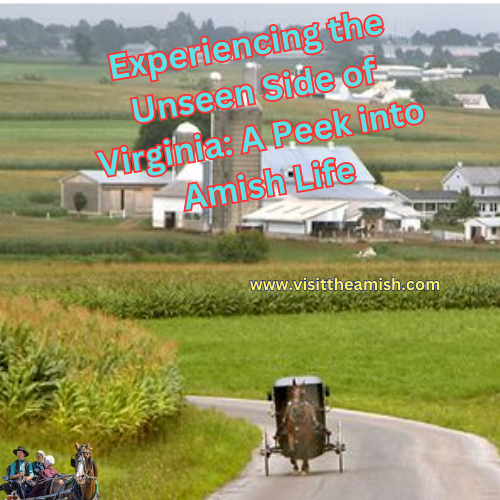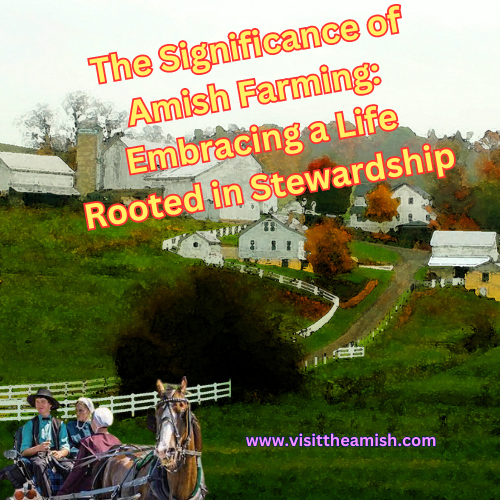Exploring Lancaster County’s Authentic Amish-Owned Dining Experiences
Nestled in the picturesque landscapes of Lancaster County, Pennsylvania, lies a treasure trove of authentic culinary experiences rooted in tradition and heritage—the Amish-owned restaurants. For travelers seeking a genuine taste of Pennsylvania Dutch cuisine amidst quaint charm and warm hospitality, these dining spots offer an immersive journey into local flavors and cultural richness. Imagine stepping into a world where time seems to slow down, where simplicity and craftsmanship take center stage, and where the aroma of homestyle cooking fills the air.
Amish-owned restaurants are more than just places to grab a bite to eat. They are windows into a way of life that is deeply connected to nature, community, and self-sufficiency. From the moment you enter, you are transported back in time, surrounded by handcrafted wooden furniture, flickering lanterns, and the sound of horse-drawn buggies passing by. The atmosphere is peaceful and welcoming, as though you have been invited into someone’s home.
The menus at these restaurants are a reflection of the Pennsylvania Dutch culinary tradition, which has been passed down through generations. Expect hearty dishes made with farm-fresh ingredients, prepared with love and care. Start your culinary adventure with a bowl of rich and creamy chicken corn soup, a local favorite that will warm your soul. Follow it up with a plate of golden-brown, crispy fried chicken, served with a side of buttery mashed potatoes and sweet and tangy chow chow. And don’t forget to leave room for a slice of homemade shoofly pie, a sweet, molasses-filled delight that is the perfect ending to any meal.
But it’s not just the food that makes these restaurants special. It’s the people too. The Amish are known for their genuine hospitality and their commitment to preserving their way of life. As you enjoy your meal, you may have the opportunity to interact with Amish families who run the restaurants, learning more about their unique customs and traditions. Their warm smiles and friendly conversations will make you feel like a part of their community, even if only for a short while.
So, if you find yourself in Lancaster County, Pennsylvania, make sure to set aside some time to explore the world of Amish-owned restaurants. Immerse yourself in the rich tapestry of Pennsylvania Dutch culture, savor the flavors of homemade meals, and embrace the warmth and charm that only these dining spots can offer. It’s an experience that will stay with you long after you’ve left, and a reminder of the beauty and authenticity that can be found in traditions deeply rooted in the past.
Brickhouse Coffee and Kitchen
53 Refton Rd, Refton, PA 17568 Steeped in history within Lancaster County, Brickhouse Coffee & Kitchen is more than just a dining spot—it’s a charming escapade into the past. Set in a mid-1800s building, this place serves up a delightful array of breakfast options and Pennsylvania Dutch favorites. The menu boasts soups, sandwiches, and wraps complemented by locally brewed beer. While savoring the homestyle cooking, visitors can opt for farmland tours or even an enchanting Amish buggy ride.
Hometown Kitchen
Nestled in the charming town of Quarryville, Pennsylvania, you will find Hometown Kitchen, a delightful restaurant that epitomizes classic Pennsylvania Dutch cooking. Located on Main Street, this cozy eatery radiates a welcoming ambiance that instantly makes you feel at home.
Step inside and be greeted by the mouthwatering aromas wafting from the kitchen, where skilled Amish cooks are busy preparing traditional recipes passed down through generations. Their dedication to preserving the authentic flavors of Pennsylvania Dutch cuisine is truly admirable.
One of the signature dishes that Hometown Kitchen is famous for is their homemade chicken pot pie. Picture a savory combination of tender chicken, wholesome vegetables, and a rich creamy sauce, all enclosed in a flaky and buttery crust. Each bite is a true comfort, reminiscent of homemade meals shared with loved ones.
If you’re in the mood for something heartier, indulge in their roast beef dinners. Savor the succulent slices of perfectly cooked beef, accompanied by velvety mashed potatoes, buttery corn, and a side of tangy horseradish sauce. The combination of flavors is nothing short of divine.
And let’s not forget about the desserts! Hometown Kitchen takes great pride in their tantalizing selection of sweet treats, most notably the renowned whoopee pies. These delectable creations consist of two soft and cake-like chocolate cookies sandwiched together with a generous layer of creamy filling. It’s a heavenly dessert that will leave you wanting more.
Whether you’re a local resident or just passing through Quarryville, Hometown Kitchen is a must-visit destination for anyone seeking an authentic taste of Pennsylvania Dutch cuisine. So come on in, take a seat, and allow yourself to be transported to a time-honored era of delicious homemade meals and warm hospitality.
Dienner’s Country Restaurant
For an authentic Pennsylvania Dutch experience, there is nowhere better than Dienner’s Country Restaurant located at 2855 Lincoln Hwy E, Ronks, PA 17572. This charming establishment has been serving up delicious meals for over two decades, making it a go-to spot for those seeking a taste of traditional country fare.
From the moment you step inside, you will be greeted by a warm and inviting ambiance. The cozy interior is adorned with rustic decor, creating a comfortable setting for a truly memorable dining experience. And if you prefer to enjoy your meal in the great outdoors, Dienner’s Country Restaurant also offers delightful outdoor seating where you can relax and savor your meal in the fresh Pennsylvania air.
Now, let’s talk about the main attraction – the food! Dienner’s boasts both lunch and dinner buffets that are sure to please even the most discerning palates. The buffet tables are brimming with an array of mouthwatering dishes, showcasing the best of Pennsylvania Dutch cuisine. From traditional favorites like homemade apple butter and chicken pot pie to classics like pork and sauerkraut, there is something to satisfy every craving.
One of the highlights of Dienner’s Country Restaurant is the talented team of Amish bakers who prepare delectable pastries and desserts that will leave you wanting more. Their incredible skill and dedication to their craft truly shine through in each and every bite. Be sure to save room for dessert because you won’t want to miss out on their famous shoofly pie or whoopie pies!
Whether you’re a local looking for a comforting meal or a visitor eager to sample the flavors of Pennsylvania Dutch country, Dienner’s Country Restaurant is a must-visit. With its authentic cuisine, warm ambiance, and friendly service, it is the perfect place to immerse yourself in the rich culinary heritage of the area. So why wait? Head over to Dienner’s and treat yourself to a truly delicious and memorable dining experience!
Katie’s Kitchen
Located amid the serene and picturesque Amish countryside on Rte 896, Katie’s Kitchen stands as a culinary haven that caters to families seeking a delightful dining experience. The moment you step through its doors, you are greeted by an inviting atmosphere infused with the irresistible aroma of classic American diner eats and traditional Amish dishes.
As if transported to a bygone era, you find yourself surrounded by the timeless charm of this establishment. Rustic picnic tables, elegantly adorned with checkered tablecloths, create an ambiance that instantly transports you to a simpler time, where moments of togetherness and heartwarming conversations reign supreme.
But it is not just the ambiance that sets Katie’s Kitchen apart; it is the menu that truly steals the show. With an array of mouthwatering options, there is something for everyone here. Indulge in delectable sandwiches packed with flavorful fillings, or opt for a refreshing salad bursting with vibrant colors and tantalizing tastes. The homemade soups, expertly crafted with love and care, warm your soul with every spoonful.
However, the culinary adventure does not stop there. Katie’s Kitchen takes pride in its daily specials, ensuring that every visit brings a delightful surprise. From hearty comfort foods to innovative twists on classic dishes, each special is a testament to the culinary prowess of the talented chefs who masterfully curate these creations.
No culinary journey would be complete without indulging in a dessert that leaves you craving for more. At Katie’s Kitchen, the dessert selection is an enchanting array of homemade delights. From freshly baked pies that capture the essence of the Amish tradition to decadent cakes that delight the senses, every bite is a sweet symphony of flavors.
Whether you are a local seeking a taste of nostalgia or a tourist eager to explore the wonders of Amish cuisine, Katie’s Kitchen invites you to immerse yourself in an experience that transcends mere dining. It is a place where memories are made, laughter fills the air, and every bite tells a story of culinary excellence.
So, gather your loved ones, embark on a culinary adventure, and allow Katie’s Kitchen to transport you to a world where good food and good company intertwine to create unforgettable moments.
Plain & Fancy Farm Smokehouse BBQ
Celebrating the Amish heritage, this charming restaurant stands as a true testament to the rich tapestry of traditional American BBQ. Situated in the heart of Lancaster County, it has become a beloved establishment that not only serves mouth-watering BBQ dishes but also offers a truly immersive experience for visitors to delve into Amish culture.
The moment you step through the door, you are transported to a bygone era, where simplicity and warm hospitality reign supreme. The rustic yet cozy ambiance creates the perfect backdrop for savoring the delectable BBQ delights that have made this restaurant a beloved staple in the community.
The menu is a culinary journey through the best of Amish-inspired BBQ fare. From tender, smoky pulled pork to succulent beef brisket, each dish is meticulously prepared with the utmost care and attention to detail. The tantalizing aromas that waft from the kitchen are enough to make anyone’s mouth water in anticipation.
But the experience doesn’t end with the food. The restaurant also boasts a selection of Amish-brewed beer, carefully crafted using traditional methods that have been passed down through generations. Sip on a refreshing pint as you soak in the authenticity and history that permeates every corner of the restaurant.
For those seeking a deeper connection to the Amish culture, the restaurant offers more than just a meal. They provide lodging accommodations where guests can experience the tranquility of the countryside and the Amish way of life. Take a leisurely buggy ride through picturesque farmland, enjoying the slower pace and simpler pleasures that define the Amish lifestyle.
And if you’re truly captivated by the Amish heritage, farm tours are available, allowing you to get up close and personal with the daily workings of an authentic Amish farm. From milking cows and tending to crops to witnessing traditional crafts in action, these tours offer a unique glimpse into the rich traditions that have shaped the Amish community.
This restaurant, rooted in a family-style tradition, not only embraces its Amish roots but also shares them with every guest who walks through its doors. It’s more than just a place to indulge in exceptional BBQ; it’s an opportunity to immerse yourself in the history, traditions, and hospitality that define this remarkable pocket of American culture.
So whether you’re a BBQ aficionado seeking the ultimate culinary experience or a curious traveler looking to delve deeper into the Amish way of life, this restaurant promises to deliver an unforgettable journey that will leave you with a newfound appreciation for both American BBQ and the Amish heritage.
Achenbach’s Pastry
375 E Main St, Leola, PA 17540 Achenbach’s Pastry is not just any ordinary bakery; it is a true haven for pastry enthusiasts, a place where the art of baking is taken to new heights. With a rich history spanning over six decades, this Amish-owned establishment has been delighting customers with their delectable homemade treats since 1954.
Step inside this charming bakery, and you’ll be greeted by the warm aroma of freshly baked goods wafting through the air. The shelves are filled with an impressive assortment of pastries, each lovingly crafted by skilled bakers using traditional techniques passed down through generations.
Indulge yourself in a world of flavors as you feast your eyes on their wide selection of treats. From classic favorites like Long John Cakes to mouthwatering danishes, croissants, and cream-filled eclairs, there’s something to satisfy every sweet tooth. The buttery flakiness of their pastries is simply unparalleled, leaving you craving for more with each bite.
But Achenbach’s Pastry isn’t just about the pastries alone. This bakery has managed to create an experience that goes beyond the culinary delights. As you explore the store, you’ll discover a range of country-themed items and souvenirs that celebrate the Amish heritage. From handmade quilts and pottery to locally sourced jams and preserves, there’s no shortage of unique treasures to take home and cherish.
What makes Achenbach’s Pastry truly special is the love and dedication poured into every aspect of their operation. The Amish work ethic shines through in the quality of their products and the genuine warmth of their hospitality. The staff here genuinely care about providing a memorable experience for every customer who walks through their doors.
So whether you are a local looking for your daily dose of sugary goodness or a visitor seeking a taste of Amish hospitality, Achenbach’s Pastry is the place to be. You’ll leave with a smile on your face, a satisfied palate, and perhaps a few extra treats to savor later.
Bird-In-Hand Bake Shop
Located at 542 Gibbons Rd, in the scenic town of Bird in Hand, Pennsylvania, you’ll find the charming and inviting Bird-In-Hand Bake Shop. This family-run bakery not only serves as a delightful destination for locals but also attracts visitors from near and far with its array of delectable treats and warm, welcoming atmosphere.
Step inside the bakery, and you’ll be immediately greeted by the heavenly aroma of freshly baked goods. From the moment you set foot through the door, you’ll feel like you’ve stepped into a cozy home kitchen, where every recipe is crafted with love and care.
The bakery’s specialty lies in its regional sweets, which capture the essence of Lancaster County’s rich culinary heritage. Indulge in a slice of their award-winning pies, each made with a flaky, buttery crust and filled with luscious fruit or decadent cream. Their shoofly pie, a beloved Pennsylvania Dutch classic, is a must-try for any visitor.
But the offerings don’t stop at pies. Bird-In-Hand Bake Shop also boasts a wide selection of other baked goods, all meticulously crafted using time-honored recipes and high-quality ingredients. From soft and pillowy cinnamon rolls to perfectly crumbly scones and buttery croissants, there’s truly something for everyone.
What sets this bakery apart is its commitment to providing more than just baked goods. Alongside their tempting treats, Bird-In-Hand Bake Shop offers an assortment of canned goods, featuring locally sourced jams, jellies, and pickles. These jars of goodness are bursting with vibrant flavors and make for the perfect souvenir to bring home or a lovely gift for friends and family.
For those looking to stock up on pantry essentials, the bakery also offers bulk items such as grains, spices, and baking supplies. Whether you’re a seasoned home cook or simply looking to try your hand at a new recipe, you’ll find everything you need at Bird-In-Hand Bake Shop.
Furthermore, the bakery takes pride in showcasing the skills of local artisans by offering an enticing selection of handcrafted products. From beautifully crafted pottery and handwoven textiles to intricate woodwork and handmade candles, each piece tells a story and adds a touch of charm to any home.
With its warm atmosphere, mouthwatering treats, and a diversified range of goods, Bird-In-Hand Bake Shop truly is a wholesome stop for families exploring the wonders of Lancaster. So take a moment to indulge in a slice of homemade pie, peruse the shelves stocked with local treasures, and experience the passion that radiates from every corner of this delightful family-operated bakery.
Shady Maple Smorgasbord
129 Toddy Dr, East Earl, PA 17519 My wife loves this place. Situated in East Earl, Shady Maple Smorgasbord stands as a premier tourist attraction in Lancaster County. With its charming location amidst the picturesque landscapes of Pennsylvania, this culinary gem attracts visitors from far and wide. People flock to this renowned establishment for its one-of-a-kind dining experience that promises to leave a lasting impression.
Shady Maple Smorgasbord prides itself on its expansive buffet, offering a tantalizing selection of dishes to cater to every palate. From mouthwatering seafood delicacies to succulent steak and an array of Asian specialties on select days, this place truly has something for everyone. The talented chefs at Shady Maple go above and beyond to deliver an exceptional culinary extravaganza that is sure to satisfy even the most discerning taste buds.
One of the highlights of Shady Maple Smorgasbord is its unparalleled dessert selection. A paradise for dessert aficionados, this establishment presents an irresistible array of sweet delights that will transport you to sugar heaven. Indulge in an assortment of delectable cakes, pies, pastries, and other sugary treats that are expertly crafted to perfection. Whether you have a sweet tooth or simply appreciate the art of dessert-making, Shady Maple’s dessert offerings are guaranteed to make your dining experience truly unforgettable.
Aside from its culinary offerings, Shady Maple Smorgasbord also boasts a warm and welcoming atmosphere that adds to its appeal. The staff is dedicated to providing exceptional service, ensuring that every guest feels valued and taken care of. Whether you’re dining with family, friends, or colleagues, this establishment offers the perfect setting for any occasion.
In conclusion, Shady Maple Smorgasbord is more than just a restaurant; it is a destination that promises a remarkable culinary journey. With its diverse cuisines, delectable desserts, and impeccable service, this establishment has rightfully earned its reputation as a premier tourist attraction in Lancaster County. So, if you’re looking for an unforgettable dining experience that will tickle your taste buds and leave you craving for more, look no further than Shady Maple Smorgasbord.
Embark on a culinary journey through Lancaster County’s Amish-owned restaurants, where heritage meets flavors, and tradition blends seamlessly with warm hospitality. Whether indulging in classic dishes or exploring regional specialties, these dining spots promise a genuine taste of Pennsylvania Dutch cuisine amidst a tapestry of cultural richness.
Like this:
Like Loading...





























